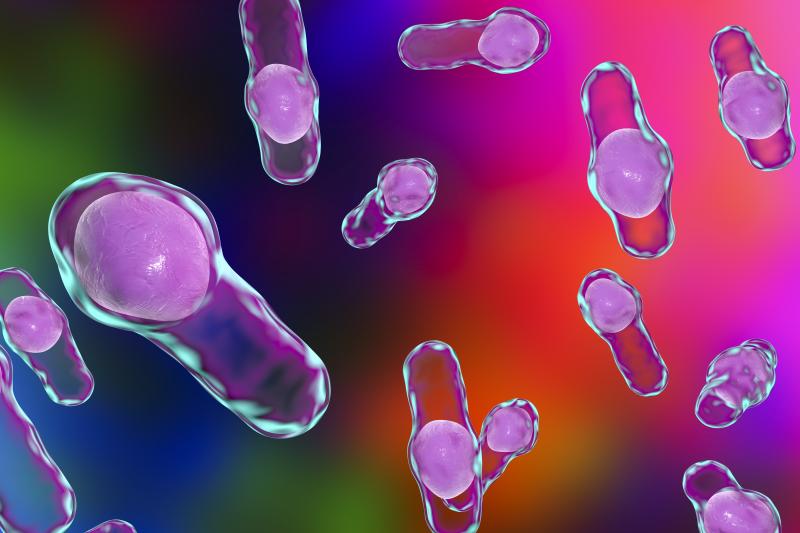
SER-109, an investigational microbiome drug consisting of a consortium of bacterial spores from healthy donors to prevent recurrent Clostridioides difficile infection (CDI), has shown a favourable safety profile in a phase II trial. Early engraftment of SER-109 dose-species helps reduce the risk of recurrence, although engraftment kinetics suggests a higher dosing to increase efficacy.
The phase II trial included 89 CDI patients (67 percent female) who achieved clinical resolution on standard-of-care antibiotics. These patients were randomized to receive either a single-dose SER-109 (n=59) or placebo (n=30). Outcomes assessed were safety, C. difficile-positive diarrhoea through week 8, SER-109 engraftment, and bile acid changes.
CDI recurrence rates were lower in the SER-109 than the placebo arm, although the difference was not meaningful (44.1 percent vs 53.3 percent). When analysis was stratified by age, recurrence was significantly reduced with the microbiome drug among patients aged ≥65 years (45.2 percent vs 80 percent; relative risk, 1.77, 95 percent confidence interval, 1.11–2.81). This benefit was not observed among patients in the <65 years age group.
Early engraftment (defined as the process by which metabolically active bacteria that germinate can establish residence in the gastrointestinal tract) of SER-109 was associated with nonrecurrence (p<0.05) and elevations in secondary bile acid concentrations (p<0.0001).
However, engraftment kinetics revealed that the dosing used in the trial was suboptimal. Adverse events were generally mild-to-moderate in severity.
The present data suggest that SER-109 speeds up microbiome repair during the window of vulnerability, thereby limiting C. difficile spore germination and clinical recurrence. Based on these results, a higher dose was selected for the phase III trial to optimize efficacy, and toxin testing was incorporated to allow accurate assessment of efficacy and safety of this investigational microbiome agent, according to researchers.